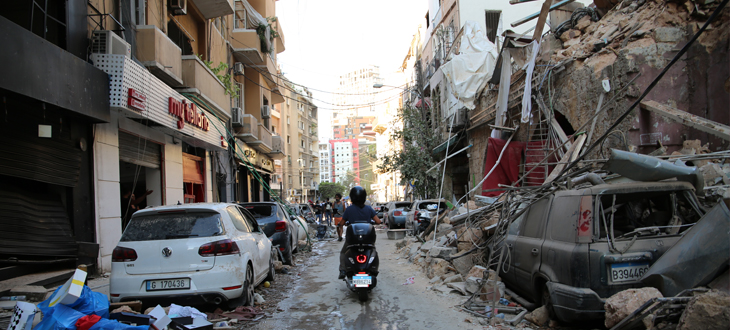On Monday, Beirut was rocked by a massive explosion as an ammonium nitrate shipment left abandoned in a port warehouse detonated due to a fire. The fallout could push an already unstable country over the edge.
When a shipment of 2,700 tons of ammonium nitrate was originally seized in Lebanon’s capital six years ago, no one knew that it would eventually lead to a huge explosion. The government reports stated that the ship carrying the supplies had technical issues and was abandoned in port, and that the material should have been disposed of. That never happened.
Though ammonium nitrate is mostly used in fertilizer, it can be used in explosives. For example, Timothy McVeigh utilized the ammonium nitrate in fertilizer to create a bomb detonated outside of an Oklahoma City Federal building in 1995, but most of the time it should be relatively stable on its own if handled correctly. Authorities in Lebanon didn’t do that. Instead, the passage of time allowed the chemicals to become contaminated, leaving them ripe for detonation.
On August 4, a fire broke out in the port, likely the result of welding sparks. First it was fireworks that started to go off before it eventually detonated the ammonium nitrate. The ensuing blast, which visually looked somewhat like an atomic bomb, was felt as far away as the island of Cyprus.
A similar explosion happened in a Chinese port city in 2015. There it was potassium nitrate, sodium cyanide and ammonium nitrate that exploded, killing 170 people, mostly firefighters, and damaging buildings.
According to officials, at least 135 civilians have died and thousands have been injured, though that estimate is likely conservative at this point.
Initial estimates have the blast reaching a 3.3 on the Richter scale, and could be one of the largest manmade, non-nuclear explosions on record. As a result, there is now a 405-foot wide-crater in the harbor.
This explosive accident could not have come at a worst time.
Recently, tensions are rising between Israel and Hezbollah, the Iranian backed Shia terrorist group located in Lebanon. The two sides exchanged fire last week.
The country is also deeply suffering from the coronavirus pandemic. On Tuesday, after the blast, there were 177 new cases identified. The hospitals, already struggling under the weight of COVID, are now completely overwhelmed with the injured. One hospital may even run out of medical supplies.
The economy is also in dire straits. According to reports, the economy is supposed to contract by 12% this year, per the International Monetary Fund, which is abysmal. There were demonstrations earlier this year and last year against the government in response to the country’s financial crisis, which included a sharp rise in the price of food and other goods.
Samaritan’s Purse, the Christian disaster response ministry, is preparing to respond through church partners.
A country like Lebanon can seem a world away, but a destabilizing manmade disaster can result in increased instability in an already unstable country and region, putting its neighbors, like Israel, at risk. Due to ISIS and the deterioration of Syria, there are more than 1.5 million refugees in a country with a population of about 5.4 million.
It will be interesting to see if the country is able to recover, or if it will become another battleground between opposing forces in the region.
Photo from Hiba Al Kallas / Shutterstock.com
Visit our Election 2020 page






